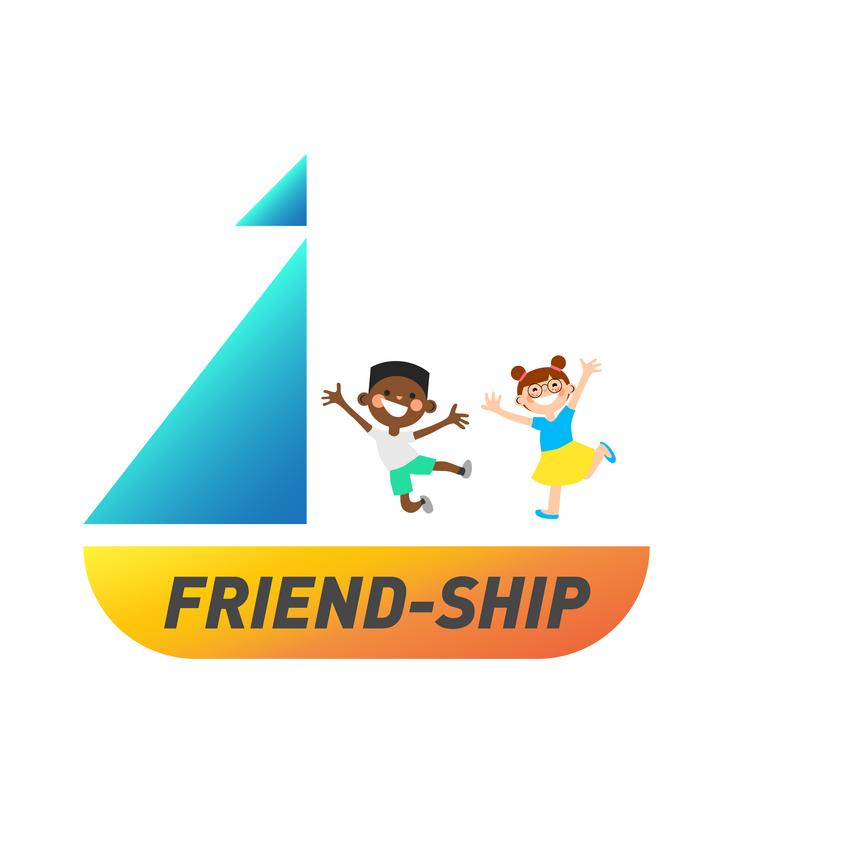FRIEND-SHIP "Improving Students' Social Participation in Primary and Secondary Schools Across Europe"

CONTEXT/BACKGROUND
Friendship is the most important feature of social participation in a student's life. However, for many students – especially those with special educational needs, refugees, students with problems in learning or chronic diseases – show that their embedding in the class community is inadequate in terms of friendships, acceptance by their classmates and the associated self-perception. Friendships are also endangered by increased digitalisation and use of mobile devices, which hinder students to enter into social contact. Hence, this project wants to promote social participation and inclusive education through the FRIEND-SHIP intervention programme – a low-threshold programme with educators and students in a 6-week period.
Inclusive schooling affects all students and is not limited to a national perspective. All schools are legally compelled to move forward towards inclusive schooling. In this regard, the United Nations Convention on the Rights of Persons with Disabilities (UN, 2007) has been ratified by most European countries, among them Austria, Germany, Portugal and Greece – the partner countries in this project.
OBJECTIVES
- Supporting students with low levels of social participation to receive regular and supportive contact to peers through the FRIEND-SHIP intervention programme
- Promoting peer learning in schools to identify and understand specific needs of each other and to learn about friendship, social participation and classroom group dynamics
- Adapting and re-adjusting the original ‘Circle of Friends’ programme to primary and secondary schools in Europe
- Promoting dialogue between educators about inclusive education and enhancing the digital skills of educators with an OER open resource to measure social inclusion in class
PROFILE AND NUMBER OF PARTICIPANTS
The FRIEND-SHIP project reaches 40 teachers throughout the entire project duration and closely works with them through training and guidance counselling. It additionally affects 400-600 students on primary and secondary school level between the ages of 8-11 years in their classes. Students, who benefit most, are those with weak social ties.
ACTIVITIES
Based upon a UK-based programme to promote student’s social participation ‘Circle of Friends’ (Luckner, 1994; Taylor, 1997; Shotton, 1998), the FRIEND-SHIP project develops and adopts this 6-week intervention programme for teachers and students in primary and secondary schools to promote social inclusion in so-called circles of friends, in which students learn to address friendships and social problems. The FRIEND-SHIP project will adapt the original programme to fit European schools on primary and secondary school level in the participating countries in AT, DE, EL and PT and will collect comparable data on the effects.
- IO1 “Improving students’ social participation” – comparative programme analysis
- IO2 “FRIEND-SHIP Identification tool” as OER tool
- IO3 “FRIEND-SHIP Intervention Programme and Evaluation” in schools with a duration of 6 weeks per intervention with 40 teachers and 400-600 students in total
- IO4 “FRIEND-SHIP Handbook for educators” as a brief and teacher-relevant instruction manual how to use the programme incl. instruction sheets
METHODOLOGY
- Preparation phase (IO 1 and IO2): In the preparation phase, the consortium undertakes a licence research for the original Circle-of-Friends Programme, a comparative desk research on already conducted programmes of social participation in schools in a comparative European perspective and summarizes this in a report (IO1). The electronic identification tool (IO2) will be programmed to fit the target user group of school teachers. In addition, the transnational E2 Teacher Training takes place.
- Implementation phase in schools (IO3): The electronic Identification Tool (IO2) and the FRIEND-SHIP intervention programme (IO3) will be implemented for the first time in 6-week periods in all associated partner schools and are evaluated in parallel.
- Handbook phase (IO4): Finally, the consortium summarizes the results in a brief and teacher-relevant way in order to show schoolteachers across Europe, how to use the programme and promote social ties in class.
RESULTS
The FRIEND-SHIP project consortium develops a “package”, which is designed as a sustainable output for teachers and other educators across Europe, who want to promote social inclusion. It includes the FRIEND-SHIP intervention programme (IO3), its parallel evaluation (IO3), the use of the OER FRIEND-SHIP Identification tool (IO2) and the Teacher Training (E2). This "package" will be available as a sustainable product at the end of the project on the website and disseminated through the E1 Final Conference.
ENVISAGED IMPACT AND BENEFITS
- Addressing and promoting social diversity in primary and secondary school
- Contributing to inclusive schooling and social participation
- Strengthening the profiles of educators in the area of inclusive schooling
| Projektzeitraum | 09/2019–07/2022 |
| Förderung | Erasmus+ Agency (Key Action 2; Strategische Partnerschaften) |
| Website | https://friendship.univie.ac.at |
Weitere Informationen
Projektmitarbeiter*innen
- Univ.-Prof. Susanne Schwab (Projektleitung)
- Dr. Katharina Resch
- Mag. Mag. (FH) Sepideh Hassani, BA
- Franziska Anna Heidrich, B.A. M.Ed.
Kooperationspartner*innen
- Universität Paderborn, Deutschland
- Universität Porto, Portugal
- Universität Thessalien, Griechenland
